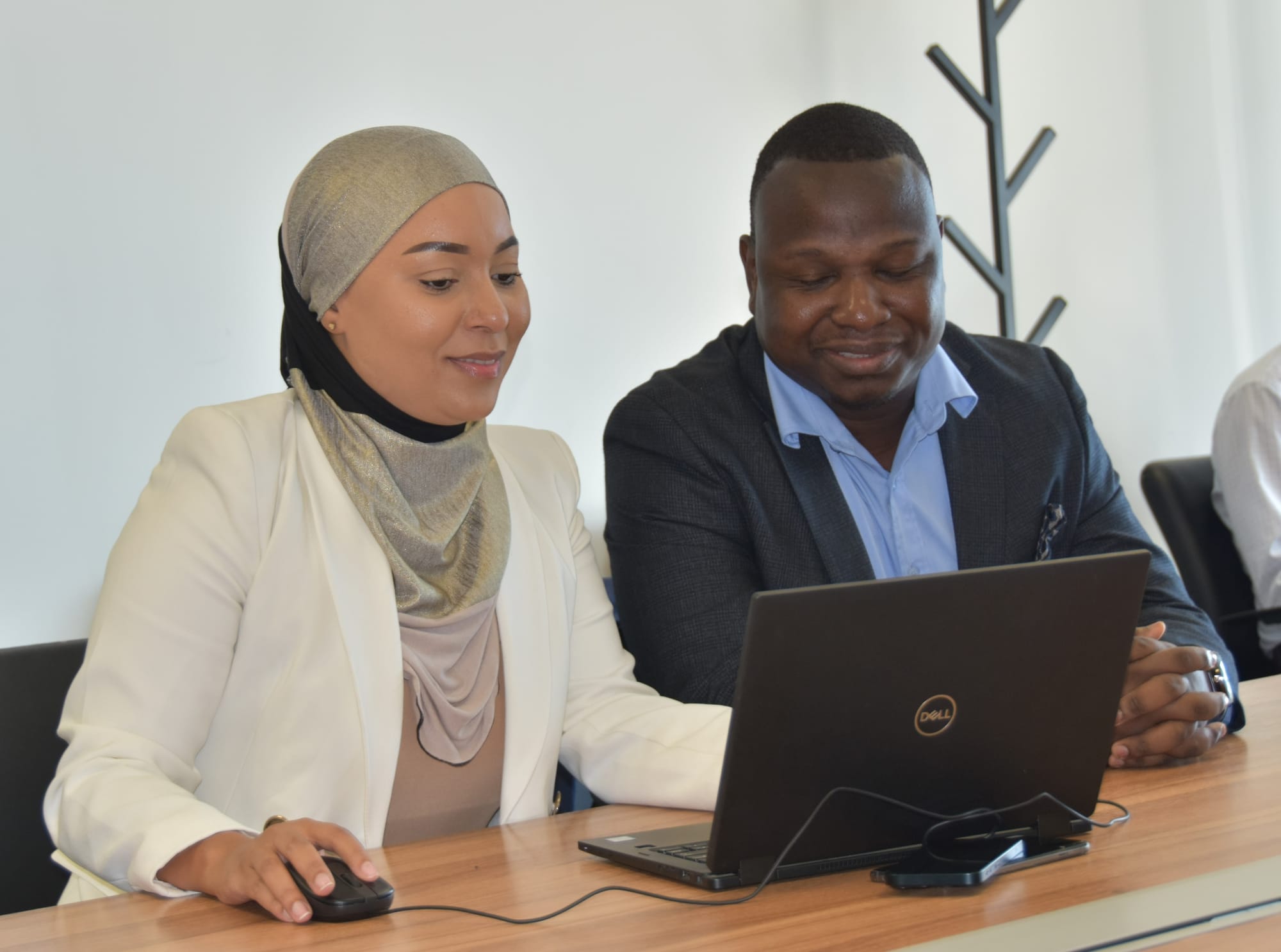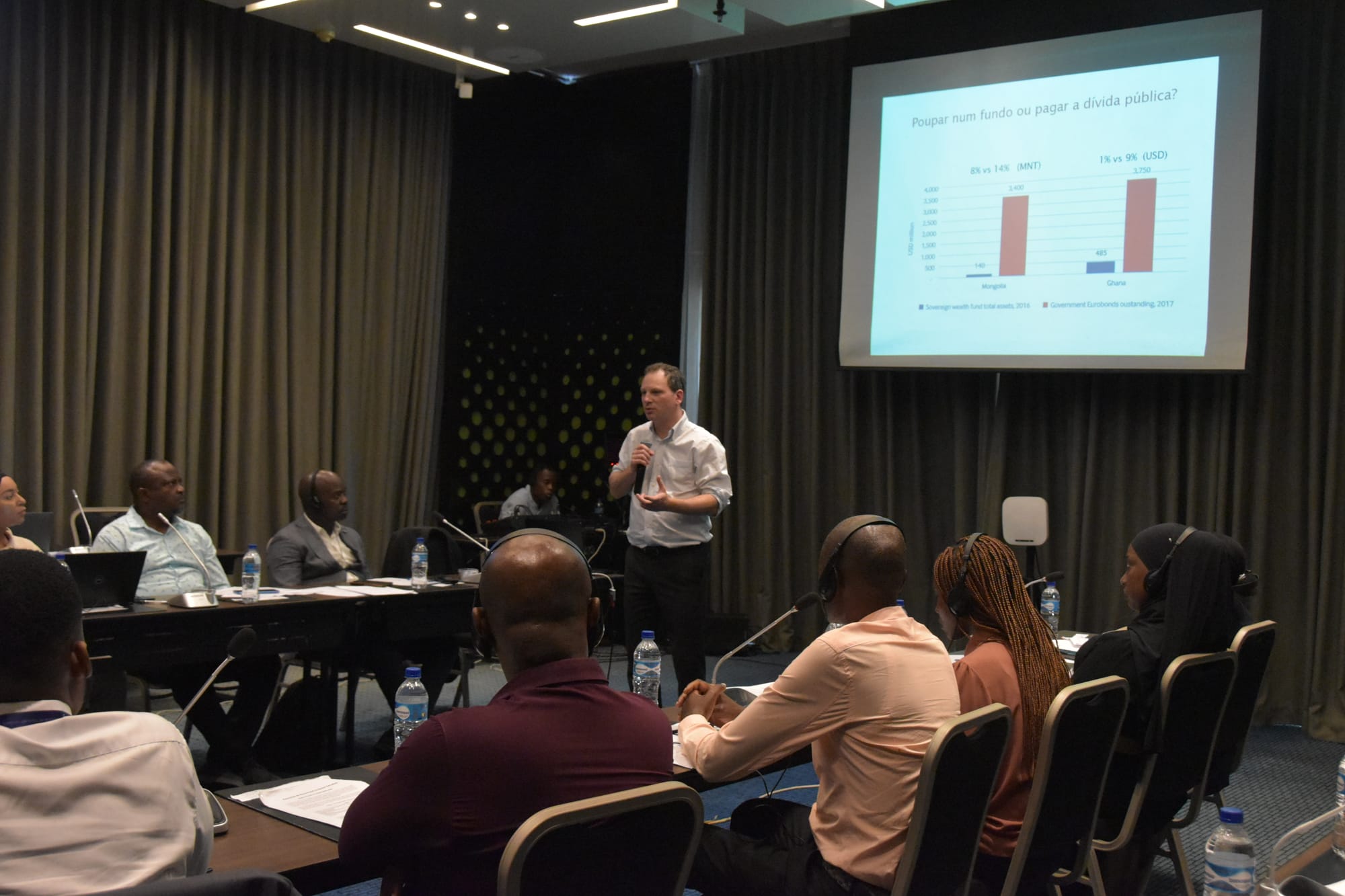In 2016, weaknesses in Mozambique’s public financial management (PFM) systems were exposed by a hidden debts scandal involving $2 billion in undisclosed government-guaranteed loans to state-owned companies, which—going unreported in the national accounts—led to a financial crisis. The scandal eroded trust among international donors and investors, led to a freeze in international aid, and revealed the urgent need for reforms to restore financial integrity, transparency, and accountability.
In response, the Supporting the Enabling Environment for Development (SPEED) project, funded by the U.S. Agency for International Development (USAID), is supporting the Ministry of Economy and Finance (MEF) and the Supreme Audit Institution to improve PFM practices and systems. SPEED is also supporting civil society to advance transparency and accountability for public spending, especially related to extractives governance. SPEED advisor Nádia Hassamo plays an important role in these reform efforts. We sat down with Nádia to learn more about her work.
Tell us about your role with SPEED.
My role involves working with the MEF to support policy implementation across four areas: strengthening the budget expenditure control framework; enhancing the internal audit control framework; building fiscal risk analysis skills; and enhancing transparency in procurement processes. I co-designed institutional support activities with ministry staff and offered expertise to improve the management of public finances.
What are some of the challenges the ministry faces?
One challenge faced by the MEF is the implementation of reform initiatives or project-based agreements with development partners. These initiatives often require substantial resources in terms of personnel, materials, and finances, which can overwhelm the ministry and lead to delays in its core work. It is important to ensure development partners are aligned with the MEF on its needs and that they provide demand-driven support to address the real challenges faced by ministry staff. This mutual understanding will improve buy-in from the government and sustainability of the activities long after donor funding ends.
How does Mozambique benefit from your work on budget management?
The GRM-IMF’s 2019 report estimates that Mozambique lost $4.9 billion to corruption from 2002 to 2014 (approximately 30 percent of its 2022 GDP). With SPEED’s assistance, the ministry expects significant improvements in budget management, including greater internal capacity to analyze fiscal risks and develop mitigation mechanisms, and more efficient public expenditure programming on a monthly, quarterly, and annual basis. We anticipate that a more structured approach to budgeting will lead to more effective use of resources, contributing to Mozambique’s overall economic stability and growth.

Why does PFM matter so much?
Good PFM directly influences the quality of essential public services such as education, healthcare, transportation, water, and sanitation. By ensuring that government resources are used efficiently and transparently, we can significantly improve the lives of all Mozambicans, providing them with better services and a better quality of life.
According to the Organisation for Economic Co-operation and Development (OECD), domestic public finance is a critical component for sustainable development, often contributing significantly more than international aid. The World Bank recommends that countries collect at least 15 percent of their GDP in tax revenue to ensure sustainable growth and development. However, Mozambique still faces challenges in reaching this threshold due to low-income levels, inadequate tax administration, and tax avoidance.
Can you share some recent results from SPEED’s assistance?
This year, SPEED supported the General Inspectorate of Finance to carry out audits for the education sector, which represents more than 20 percent of the 2023 State budget. In total, 23 inspectors audited 490 schools in the Zambézia, Nampula, and Niassa provinces. Transparent audits of schools will help the government improve the management of education funds. Earlier in 2024, we also conducted training on identifying and quantifying fiscal risks in the extractive industry, for 23 technicians from the MEF and other government entities associated with extractives.

What is fiscal risk, and how can it impact citizens?
Fiscal risk refers to the potential for government finances to be adversely affected by certain events or circumstances. Fiscal risk can arise from economic downturns, unexpected events (such as natural disasters like cyclones or pandemics), or long-term demographic trends. For example, the COVID-19 pandemic significantly increased the financing gap for sustainable development, highlighting the need for robust tax risk management.
Fiscal risks can impact citizens’ lives through potential changes in tax rates and the availability and quality of public services, infrastructure investments, and social programs. Governments must carefully manage fiscal risks to ensure long-term financial sustainability and maintain the necessary resources to meet the needs of their citizens.
The MEF has developed a Fiscal Risks Note. How will the government use it to improve PFM?
The Fiscal Risks Note, produced by the MEF with support from SPEED, will provide the government, Parliament, and the public with greater knowledge of the risks related to the development of the extractive industry—such as the volatility of resource prices, Dutch disease, absorptive capacity, and fiscal sustainability. By implementing the recommendations in the note, the government can mitigate potential risks, ensuring that fiscal policies remain robust and that financial resources are managed sustainably to support Mozambique’s economic growth and stability.





